A
history of Social
Science
from ancient Greece to the 21st century
Introduction
Reason in Plato and Aristotle and how it relates to gender
Hobbes and State of Nature Theory
Filmer and Locke
Rousseau and the French Revolution
Adam Smith
Jeremy Bentham and Utilitarianism
Robert Owen
Theory in the 1830s and 1840s
Utilitarianism, Owenism, Thompson and Wheeler and feminism
Poor Law and Social Policy
Lord Ashley and Mill and Taylor in 1848
Marx and Engels in 1848
Engels "Origin"
Durkheim and Weber
Freud
My name is Andrew Roberts and I give the lectures on Social Science
History. Most of you who take it will not start
with much knowledge about history or the people we are talking about -
Weblinks from the online lecture notes will let you find out what you need
to know, when you need it.
These are the online lecture notes. The lectures use a lot of pictures. You
need to take the images stimulated in your mind by these, and use them
to help you read.
The web lecture notes began as just the notes used in lectures, and
some of them are still just headings. I have, however, been adding
pictures, writing the notes out and building in links to the web versions
of the texts referred to.
The central issue of the first module in this course is the development of
a "scientific" approach to
themes previously the concern of theology and philosophy. We look at how
"science" develops from
"theology" and "philosophy".
You should ask yourself the questions:
I will start by suggesting that science requires at least two elements:
ideas and observations.
Often, when people talk about
science, they talk mainly about the observations side. We, however,
will look at the ideas side of science.
Introduction to Social Science History
You will not find statistics
or other social data in these lectures - We are looking at the thinking
that comes before the statistics.
|
|
 What has pink elephant to say about this?
What has pink elephant to say about this?
|
|
Reason is something which lets you get results from your mind, without consulting books or asking a lecturer. Theory, reason and an argument all allow you to anticipate the direction they are going in. |
|---|
|
For example. High on a Scottish mountain you meet someone who needs to travel to Room B2 on Enfield Campus at Middlesex University. It is your campus and your university - but you have never seen B2. You have seen B4. Do you say "I cannot help you", or does your mind anticipate where B2 is? The way you anticipate involves using a theory of numbers. You think B2 is likely to be near B4, but why?
|
August Comte (1797-1857) divided the history of ideas into three stages:
- theological,
- philosophical (critical)
- scientific (positive)
| theological |
Filmer
|
|---|---|
| philosophical |
Hobbes and Locke
|
| scientific |
Adam Smith Utilitarian Theory,
|
We can begin the story of modern social theory with the "state of nature" theories of Hobbes and Locke and the theological theories of Filmer.
You all know what a state of nature is: It is walking about in the woods with no clothes on!
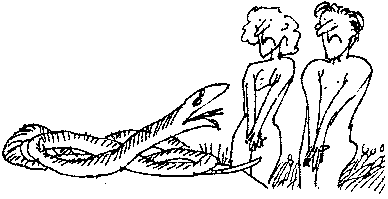
|
click on the serpent to read his story |
The Adam and Eve picture illustrates theological and state of nature
theories which you can read about in
chapter two of Social Science
History. The same page has these two descriptions:
"state of nature theorists"...
work out what society and
politics are about by imagining ..human beings..stripped of ..social
characteristics .. They ..try to show how the needs of those individuals
explain their need for society and politics...
Theological theories say that there is a body of divine law from which you deduce natural law.
Hobbes wrote: Leviathan.
Leviathan is a monster
described in Job, one of the
oldest (?) books of the Jewish
Bible. There are two monsters described in this passage of Job:
Leviathan
and Behemoth.
This is a picture of them drawn by the artist-poet William Blake
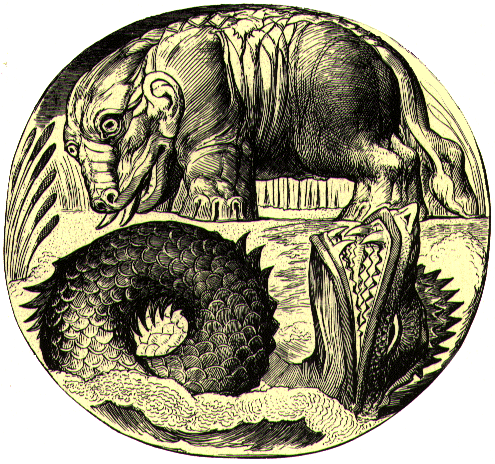 Views differ about what they are, but
Leviathan sounds to me like a
crocodile, and
Behemoth like a hippopotamus. Hobbes named another of his
books Behemoth
Views differ about what they are, but
Leviathan sounds to me like a
crocodile, and
Behemoth like a hippopotamus. Hobbes named another of his
books Behemoth
By clicking on the links above you can read the descriptions from Job. Particularly notice these parts from Leviathan
His scales are his pride,
shut up together as with a close seal.One is so near to another, that no air can come between them.
The arrow cannot make him flee:
slingstones are turned with him into stubble.Darts are counted as stubble:
he laugheth at the shaking of a spear.
"Upon earth there is not his like,
who is made without fear.He beholdeth all high things:
he is a king over all the children of pride."
Hobbes' book has the full title Leviathan Or The Matter, Form and Power of a Commonwealth Ecclesiastical and Civil
We can take the word "Commonwealth" as meaning " Society". The book, therefore, is about the matter, form and power of society. It was published in 1651, just after the English Civil War.
Although we have classified Hobbes as a philosopher, he thought of himself as a scientist. Hobbes wanted to make a scientific model of politics like Galileo's model of the Universe.
Galileo's theories started from simple
axioms,
or basic statements,
about the laws governing matter. One of these laws is what we know call the
law of inertia, that a body continues its motion in a straight line until
something intervenes to stop it.
Hobbes wanted a scientific model of the political universe. He
argued that science should use theories based on "right reason". Thes
would be modelled on the mathematical disciple called
geometry. (If you click on the coloured
word
it will take you to the Study Guide page about geometry).
Hobbes says that if we give correct definitions to things we can argue from those definitions to universal conclusions. Correct definitions are like axioms. Hobbes calls them definitions because he is an empiricist.
Hobbes is an Empiricist: He believes that all our ideas come from observations:

Observations set up trains (chains) of thought:

Some just meander:

Some have an end:


In a state of nature other people are either:
- an end or a means to an end:
- People about whom one fantasizes their utilisation for obtaining
desires.
or - an obstacle stopping us getting our end
- People about whom one fantasizes their death.
Here are some suggestions:
We are looking at how "science" develops from "theology" and
"philosophy".
Science involves both ideas and observations: We are looking at the ideas
side of science. Ideas come in patterns that we call theories.
The two types of
theories we are looking at are:
"State of Nature" and "Theological"
The three theorists we are looking at are: Sir Robert Filmer, Thomas
Hobbes and John Locke, all of whom lived in the 17th century, at about the
time of the
English Civil War.
Today I am going to look at the way that their different theories
explain
power
Power is a general concept. If you have a theory of power
that explains politics, the same theory should be able to explain the power
between men and women, or the power of parents over children.
I will start with Hobbes, because he can be summarised by the picture at
the front of his book.
Go back and look at Hobbes: The Big
Picture.
Hobbes: The Big
Picture
At the front of Leviathan there is a picture in which the ideas of the book
are summed up. Before, you read further, click on the coloured words above
to look at some of the main features of the picture. Scroll down to the two
columns of small pictures at the bottom. What are the pictures off? What do
you think they symbolise?
People can think what they like (nobody can stop them), but
they cannot read or speak anything that the sovereign does not permit
because that would endanger the peace.
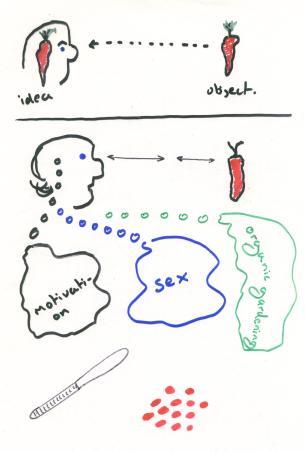
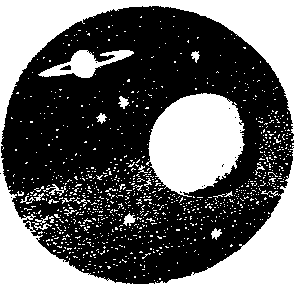



 I will use the crown for the King's power
I will use the crown for the King's power
 The bench can symbolise Parliament's power
The bench can symbolise Parliament's power
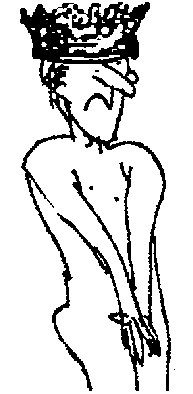 If you click on King Adam you can read what
Rousseau thought of Filmer's arguments
If you click on King Adam you can read what
Rousseau thought of Filmer's arguments

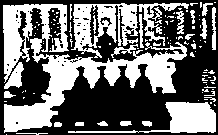


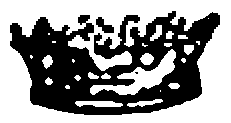





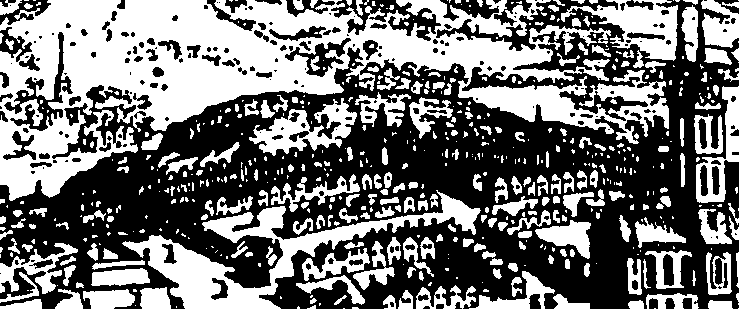
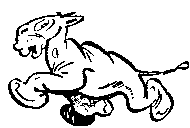

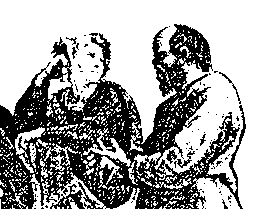
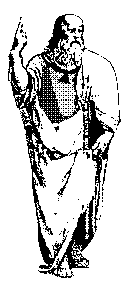
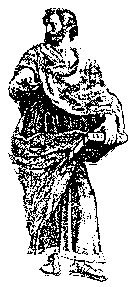






 Click coloured words to go where you
want
Click coloured words to go where you
want